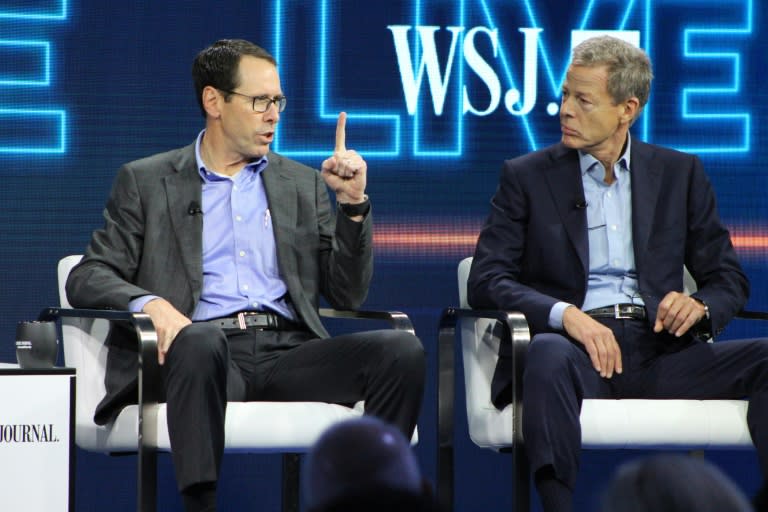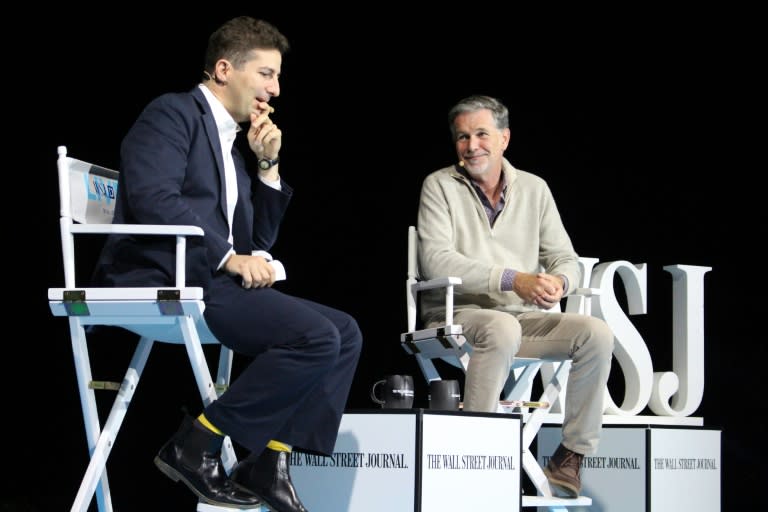AT&T acquiring Time Warner on shifting media terrain
The proposed mega-merger of AT&T and Time Warner comes as media companies maneuver to remain relevant to audiences increasingly turning to the internet for entertainment. The top executives from the companies on Tuesday made their case for the merger, valued at $108.7 billion, at a prestigious Wall Street Journal technology conference where titans including Netflix and YouTube weighed in on the deal and the future of television. "The intent is to bring Time Warner and AT&T together to make a different kind of competitor in the ecosystem," the US telecommunication's titan's chief executive, Randall Stephenson, said during an on-stage chat at WSJD Live. He buttressed his point by announcing that AT&T will launch a DirectTV Now streaming service in the US that costs $35 monthly, comes with unlimited streaming to mobile devices, and boasts more than 100 channels. Stephenson said that a goal of the merger is to create a competitor to cable service in this country, and depicted a not-to-distant future in which set-top boxes are obsolete because viewers get their content directly from the internet. Time Warner, if the deal clears regulatory hurdles, will become a launchpad for innovations in pricing, advertising and delivery, according to Stephenson. After the deal was announced Saturday public interest groups, politicians and regulators signaled it would come under tough scrutiny. Stephenson on Tuesday referred to criticism as "uninformed comments" and expressed confidence that any concerns brought up by regulators would be remedied. - Net neutrality - The heads of global streaming television service Netflix and video-sharing colossus YouTube voiced no opposition to the proposed merger during on-stage interviews at WSJD Live. Netflix chief executive Reed Hastings said that he didn't oppose the merger "as long as HBO's bits and Netflix's bits are treated the same." HBO is among Time Warner properties. "We would really want to make sure it didn't give an unfair advantage to HBO over Netflix," Hastings added. The worry focused on an issue of giving online data equal treatment, in that AT&T wouldn't provide Time Warner content faster, more secure handling on the internet. There has been a lot of change in the traditional television landscape, with media companies looking for ways to adapt, YouTube chief executive Susan Wojcicki said when asked her thoughts on the AT&T move to buy Time Warner. Television viewing by people ranging in age from 18 to 24 years old has dropped 40 percent in the past five years, according to YouTube. Meanwhile, more than a billion people each month go to YouTube for how-to videos, music, video-game play and more. "We live in this really amazing time," Wojcicki said. "Video distribution is so broadly available and so many people can create content. Our goal is to be a platform for those next generation platform companies." Along with its free videos, the website has a YouTube Red subscription service priced at $10 monthly. She did not disclose exact subscription figures, but said that they have "been good." - Costly content - While YouTube routinely get content for free, nurturing its community of creators and rewarding them with ad revenue, the cost of making professional quality programs is rising, according to industry insiders here. Netflix and Amazon Prime are ramping up how much they spend on original shows, investing billions of dollars in content. "It was very smart of Time Warner to do what they did," Trian Fund Management founding partner Nelson Peltz said of the pending merger. "The entire content business is changing; the moats basically have been destroyed... It takes a lot of capital."

 Yahoo Finance
Yahoo Finance 


